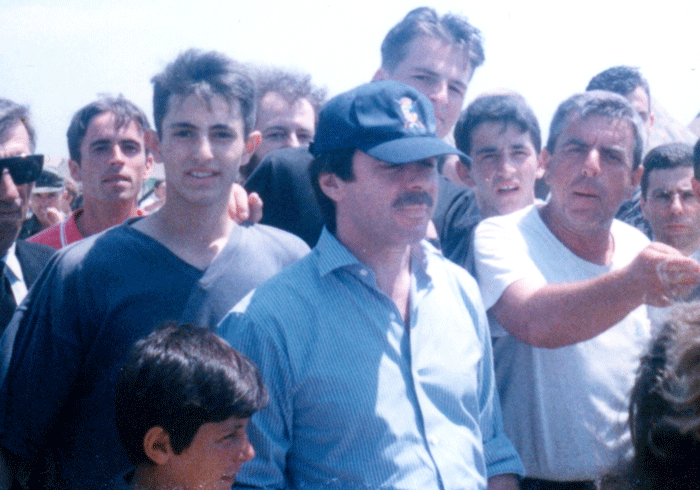ArtReview sent a questionnaire to artists exhibiting in the various national pavilions of the 2019 Venice Biennale, the responses to which will be published daily in the lead-up to the Venice Biennale opening on 11 May.
Alban Muja is representing Kosovo. The pavilion is located at the Arsenale (Sale D’Armi)
What can you tell us about your exhibition plans for Venice?
I come from a place where 20 years ago we couldn’t talk about art: only about our own existence. I also come from a place where we were forced to grow up fast. These feelings are the reference points for my work at the Kosovo Pavilion. Family Album is as a video installation which profiles three different experiences of child refugees during the 1999 Kosovo War and the impact the conflict had on their lives over the following two decades. I tracked down these individuals from three examples of photojournalism that had become emblematic of the conflict in order to address the stories of these individuals from their own position in the present age. So it’s a work about memory, history and the power of narrative in times of conflict and after.
What does it mean to ‘represent’ your country? Do you find it an honour or is it problematic?
It is important, taking part in Venice comes with responsibility – the work not only represents you but also where you come from. However, Kosovo is a new state in transition – in flux – which has ongoing problems with international recognition. People also lack information about this young country. So, in many ways, there is a pressure to ensure integrity around the representation. So, in this respect I am proud to be able to have the opportunity to share my experiences and those of my countrymen with people who may visit the Biennale.
Is your work transnational or rooted in the local?
As a theme the pavilion is transnational but from a perspective that is resolutely based on the experience of local people. Stories such as the three I tell can be found anywhere which may also have a troubled past and present. I believe that an artist’s purpose, particularly at major art events like the Venice Biennale, is to present to the public local stories that communicate transnational problems.
How does having a pavilion in Venice make a difference to the art scene in your home country?
This is our fourth time at the Venice Biennale, which is remarkable given we have had to build and develop a country almost from nothing in the wake of the war. I believe our official participation has been one of the best decisions for the country: it has helped build the profile of the local art scene in Kosovo, bringing in investment to the local art ecosystem. Here we have the chance to be showing alongside other countries which, for a young country, is important. The possibilities are endless because the desire and will to create them exist.
The Venice Biennale runs 11 May – 24 November 2019
